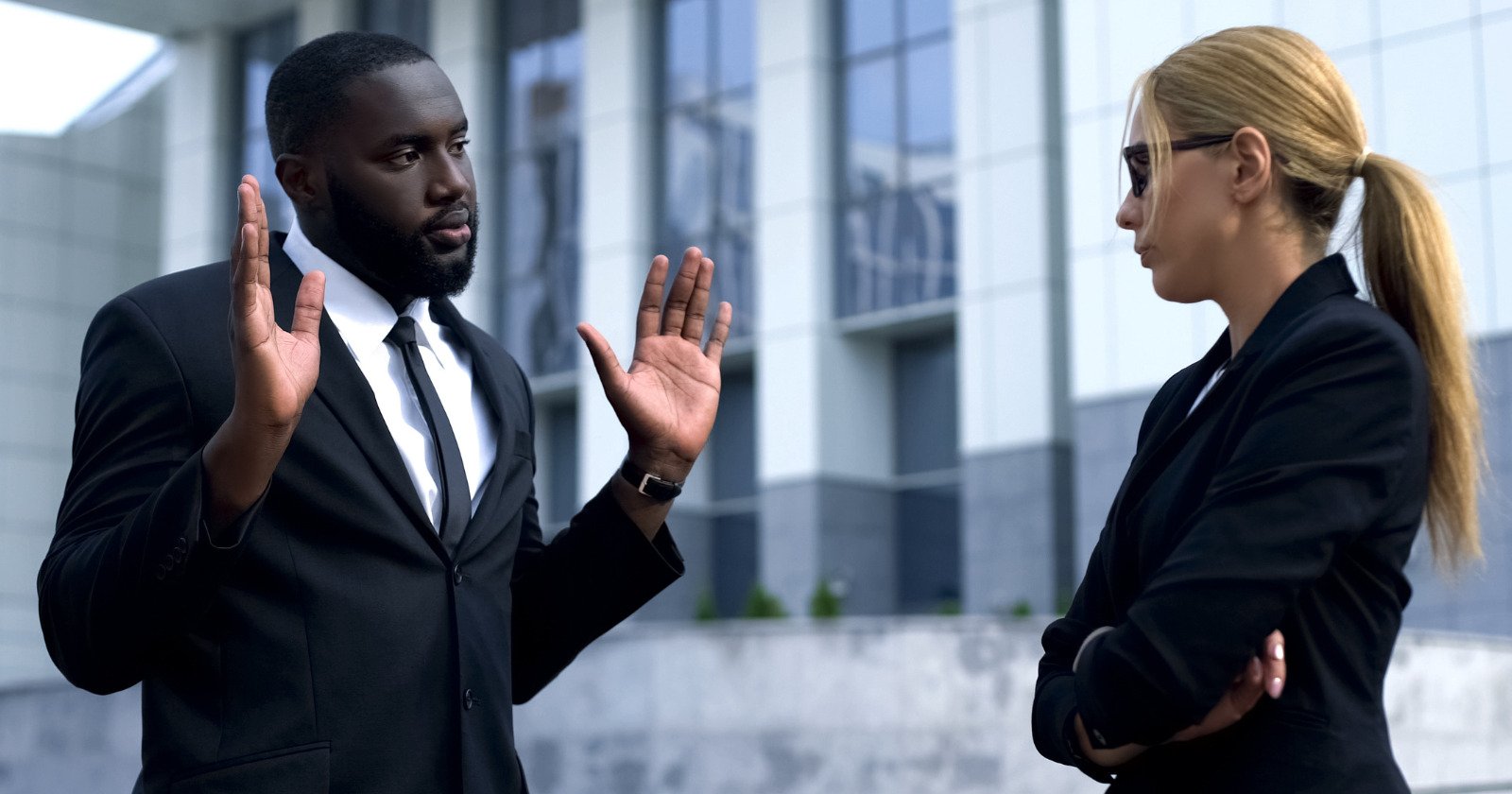We all make mistakes. It’s just part of being human. But what really matters, how do we drive them?
Some people belong to their mistakes, sincerely apologize and move forward. Others not so much. Instead of saying “I’m sorry”, they avoid, distraction or even goes to sin.
The humble part is that this behavior is not always obvious. Some people have mastered the art of avoiding responsibility so delicate, you may not even realize what is happening.
But when you start to pay attention, the patterns become clear. Here are eight delicate behaviors who refuse to apologize when they are wrong.
1) They move the blame on another
Have you ever talked where you confronted someone about something only to walk that you would be guilty?
It’s not accidental. People who refuse to apologize are experts to turn the script.
Instead of matching their mistakes, they redirect sin.
Maybe they say.
Whatever, their goal is to avoid responsibility, forcing someone to bear the weight of their actions.
And if you are careful, you can just end, instead apologize to them.
2) They make excuses instead of taking responsibility
Once I had a friend who had ever shown late, sometimes for ten minutes, sometimes for an hour. One day, after a long wait in a cafe, I finally took them out.
Instead of apologizing, they hit me up a long list of excuses.
And as soon as it is, the conversation turned out to all the reasons I needed to bring it bad to the lack of accountability.
It’s about people who refuse to apologize. They do not take responsibility.
Instead, they rely on the excuses to justify their actions, it seems to be sorry for sorry, because they are not really sin.
3) they go down your feelings
When someone refuses to apologize, they often try to look smaller than actually.
Instead of recognizing the influence of their actions, they can say that such things, “It’s not a big deal” or “You are too much.”
This tactic is not only exempt. It is a delicate form of gas light.
Minimizing your feelings, they ask you a question, you have the right to be upset in the first place. And how much does it happen, the harder it becomes your land to stand and demand accountability?
Studies have shown that emotional invalidity can have long-term consequences on self-esteem and emotional well-being.
When someone is constantly coming down to your experience, it can guess you second, creating a cycle where the lack of forgiveness becomes normally.
4) They bring your past mistakes
Instead of applying for what they did wrong, some people would prefer to dig your past mistakes to move the center away from them.
You call them something and suddenly you hear about that once, months (or even years).
It doesn’t matter if the situations are completely different. The goal is to put yourself in a defensive place so that they can take responsibility for their actions.
This tactic can be especially disappointed, as it turns a simple conversation into a full state.
Instead of solving the problem, you find you justify the things that have already apologized, while they are comfortably avoiding doing the same.
5) They pretend nothing happened

One of the most impressive things is when someone hurts you, refuses to apologize, and then take action, as everything is fine.
I’ve had it more times than I can count. No confirmation, no conversation, just a sudden transfer to normal, as if the conflict never exists in the first place.
At first I would like me to bring up again or just go. And honestly. That’s exactly what they hoped for.
Nothing happened by initiating, they avoid being held accountable. They count during the level of time so that they will never say the words “I was wrong”.
And if you play. Cycle just keeps repeating.
6) They have overgrown instead of apologizing
Sometimes people who refuse to apologize do not benefit or get rid of. They get a word.
Instead just saying: “I’m sorry, I was wrong,” they start a long-lasting explanation why they did what they did.
They will accompany you with every small detail, their intellectual process, their intentions – everything to justify their actions without actually accepting them.
At first it may seem open and honest. But if you really hear, you will notice the missing. Responsibility.
Their explanation is not right about making things correct. To make sure they have apologized at all.
7) They are kidding about it to brush it
Some people avoid apology turning the whole thing into a joke.
You bring something that disturbes you, and instead of taking seriously, they laugh at a sarcastic comment or game jabrov. Or “Relax, isn’t that I have destroyed your life.”
At first, it may seem harmless, but this tactic is actually a way to hold responsibility.
Creating the situation, they are in the center away from real and on your response. And if you push back. Suddenly you are you who can’t make a joke.
8) They wait for you to throw it
Sometimes the most effective way to apologize is to do anything at all.
No excuses, jokes, changing the accused, just silence. They know that you are upset but instead of applying for it, they are waiting.
They assume that if they long to ignore the situation, you will continue or feel too exhausted to be brought up again.
And more often than no, it works. Not because the question was not important, but because you were tired of apologizing for never going to come.
Why is real accountability important?
If you have read this distance, you probably met someone who struggles to take responsibility for their actions. And if you have, you know how disappointing and sometimes even harmful can be.
Because it’s not just a difficult conversation to avoid being apologized. It is about to avoid reporting from accounting, to reject the feelings of others and prioritize for communication.
Psychologists have found that real apologies help restore trust and strengthen relationships.
But when someone refuses to recognize their mistakes, it creates a pattern where their comfort is more important than your feelings, and when there are unresolved issues.
At the end of the day, apology is just sorry to say.
It’s about to show that you meet the people around you to accept when you are wrong. And such accountability. That’s what really defines a strong character.
